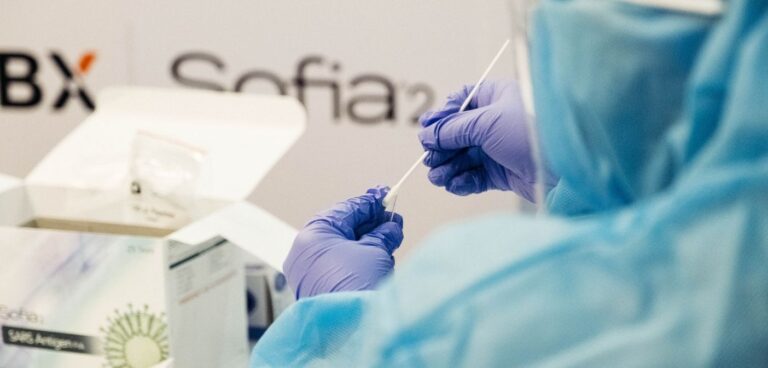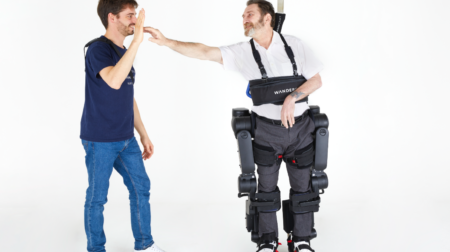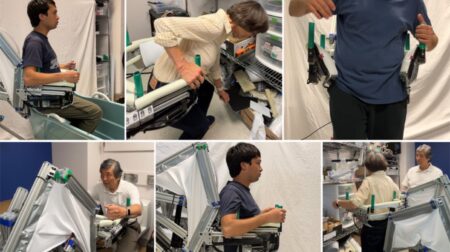Researchers at Shanghai University have developed a robot that can reportedly secure a nucleic acid sample via a throat swab in 22 seconds.
The machine has been designed to use a robotic arm and automated processing to collect a swab sample, scan codes on test tubes, sanitise the device, among other features involved in the testing process.
In order to be tested, users scan a QR code to register with the system, before following automated verbal instructions so the arm can swab the throat and seal the sample in a glass tube.
The arm’s movement is constrained by the device’s settings, and will stop moving if the infrared system detects that the arm would otherwise extend beyond the designated areas.
“Clinicians performed the throat swabbing and sampling services on campus, but during the toughest time around April, when the demand for the service surged across the city, the team recognised the medics’ heavy workload,” said Miao Zhonghua, deputy director of Shanghai University’s School of Mechatronics Engineering and Automation and project lead.
“It motivated our team to explore using automated collecting methods on campus to ease the clinicians’ burden.
“The accuracy of the procedure is guaranteed by the technologies used-such as standardised algorithm, visual positioning, and 3D modelling human mouths-avoiding the uncertainty caused by doctors who are at different levels in their profession.
“It’s also important that the robot conducts each sampling without pressing too hard, which is achieved by sensors at the edge of the robotic arm that control the power.
“Further experimentation and research will be conducted to improve accuracy and stability, in order to find the right motion for each throat. We’ll cooperate with local medical institutions for future commercialisation.”
According to municipal data, Shanghai has since seen the installation of more than 15,000 sampling facilities in key public spaces, such as residential areas, business districts and schools, among others.
The machine is connected to a digital monitoring platform which oversees the operating settings, storage of medical data and emergency notifications.
Studies on applying this form of technology to medical sampling have apparently been underway at Chinese universities for the past two years.
For example, a group of researchers at Southern University of Science and Technology in Shenzhen showcased a robot able to collect throat swabs in 2020, which has reportedly performed more than 500 tests as of June this year.
Similar devices have also been studied at Tsingke Research Institute and Tsinghua University. The throat swab robot co-developed by the two institutions went into mass production in June. They claim it takes a maximum of 30 seconds per person to collect a viable sample and works in environments from 0-45°C.








